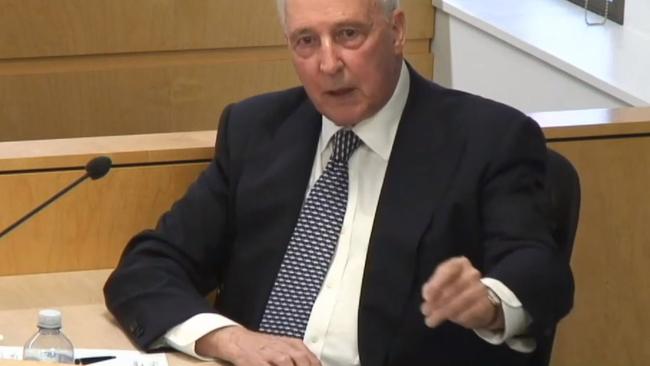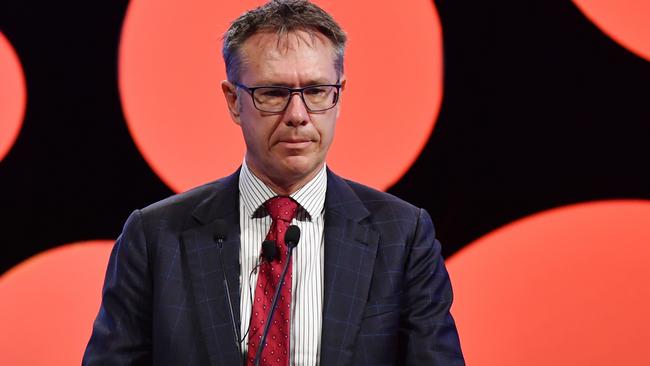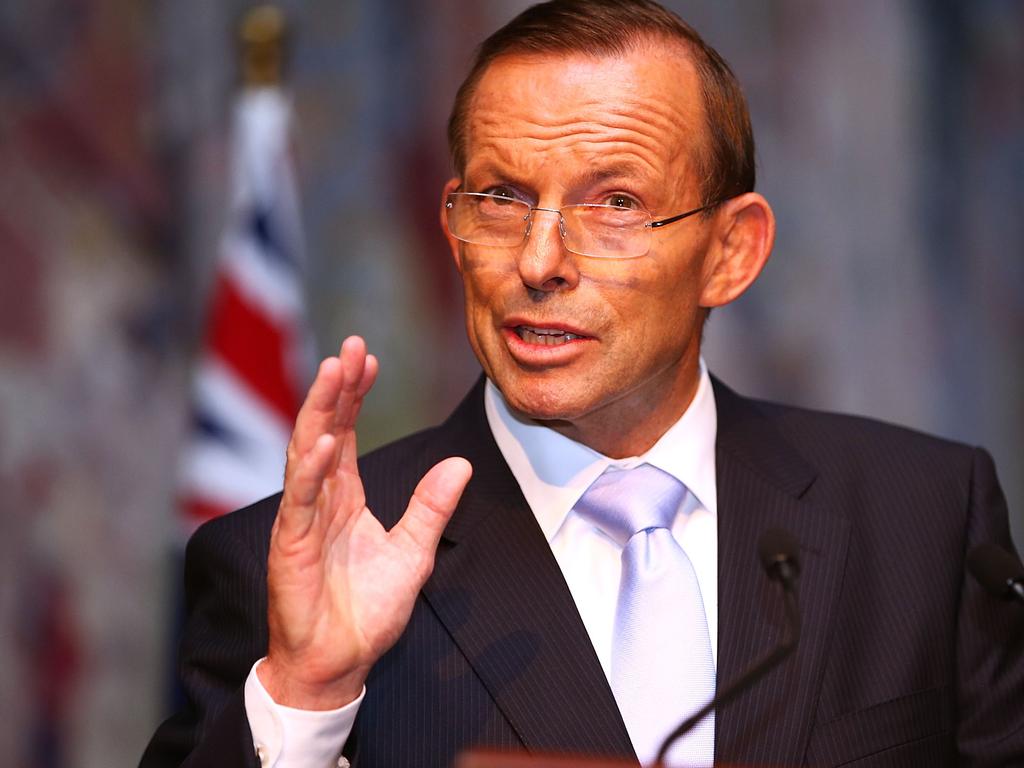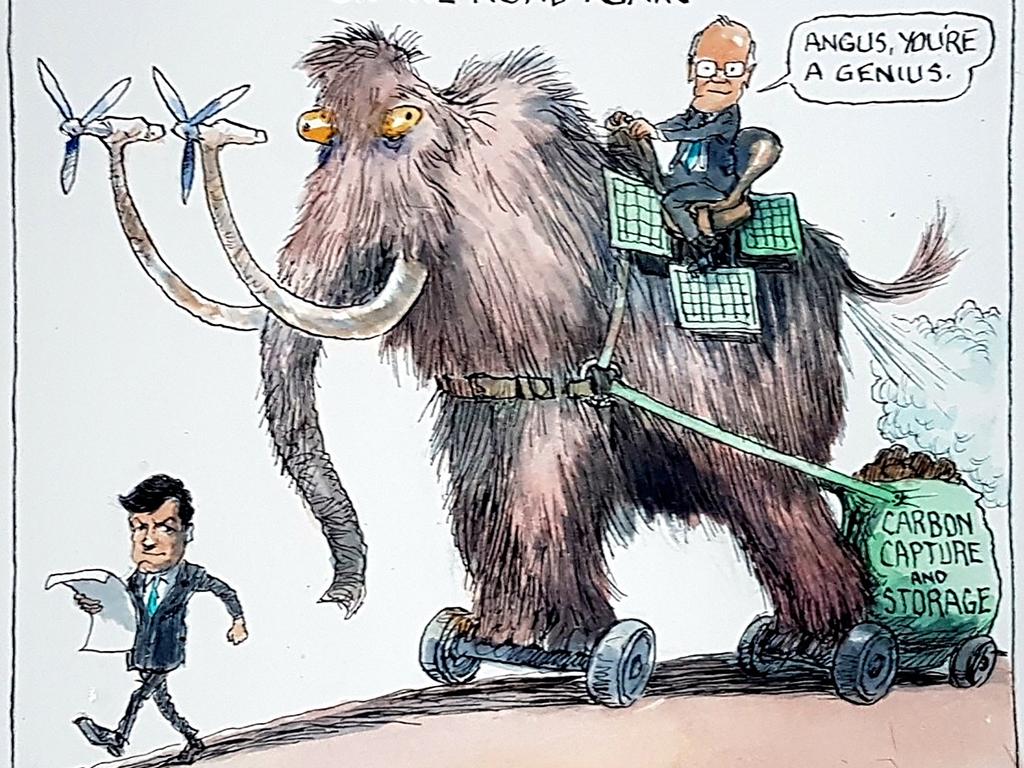Economists unhappy with RBA rocket from Paul Keating
Economists have come out in support of the Reserve Bank after a blistering attack by former prime minister Paul Keating.

Economists have come out in support of the Reserve Bank after a blistering attack by former prime minister Paul Keating.
Amid rising expectations of rate cuts and a broader commitment to keeping government bond yields low after its October 6 board meeting — the day the government is expected to deliver tax cuts and spending initiatives worth about $50bn — economists rejected Mr Keating’s claim the bank was “way behind the curve in supporting the government in its budgetary funding measures”.
“I have immense respect for him, but I thought his comments regarding the RBA were over the top,” said AMP Capital chief economist Shane Oliver.
“The RBA moved very quickly in the pandemic. Even before we even had the lockdowns, the RBA cut rates and did all sorts of unusual things to support the economy and calm financial markets.
“It set a three-year bond target, it stopped a dislocation in the bond market. They didn’t sit around contemplating, they moved straight away.”
In a landmark speech this week which drew Mr Keating’s ire for being “way not good enough for a government trying to fund a massive support program for an economy in distress”, RBA deputy governor Guy Debelle canvassed “options” available to the bank should they prove “warranted”.
The dovish tone of Dr Debelle’s speech fuelled bets of policy action by the RBA next month.
Expectations of interest rate cuts and broader bond buying pushed the three-year bond yield down to a historic low of 0.14 per cent and the 10-year yield down to a five-month low of 0.77 per cent, helped knock the Australian dollar down to a nine-week low of US70.16c, while contributing to a rebound in Australia’s S&P/ASX 200 share index to a two-week high of 5964.9.

“Keating seemed to be leaning in the direction of putting the Reserve Bank in the pocket of the Treasurer,” Dr Oliver said.
“It’s a slippery slope when you go down this path.
“He seemed to intimate that the RBA should be working more closely with the government, which is going back 30 years and reversing, ironically, Keating’s push to make the Reserve Bank independent.
“That was a very good reform which ultimately helped lower inflation.
“Going back to a situation where the Reserve Bank is perhaps an arm of the government or under the control of the Treasurer would be a big mistake and I don’t know that it would help.
“What’s wrong with Guy Debelle putting out a list of things they’re thinking about doing?”
In recent months the RBA has consistently indicated that negative interest rates are “extraordinarily unlikely” in Australia, but in his speech this week Dr Debelle indicated it was open to lowering its target for the official cash rate, the three-year bond yield and its term funding facility for banks from the current 0.25 per cent, as well as expanding its bond buying.
“I think what Debelle did and Lowe has done over the last couple of months has been great,” Dr Oliver said. “I mean it’s the sort of debate they should have, where they put out potential options.
“In a crisis like we had in March, they just have to move quickly and just do it.
“Now, you could argue it’s more debatable.”
RBA Governor Philip Lowe indicated in parliamentary testimony a couple of months back that while monetary policy could do more, it might “push on a string” if people weren’t ready to borrow more.
“There’s the risk that the RBA now faces a liquidity trap, so the focus is now on fiscal policy,” he said. A decision to relax responsible lending rules for banks announced by Treasurer Josh Frydenberg on Friday will make it easier for banks to lend to small businesses and home buyers.
Dr Debelle noted that the “current level of government bond rates is not a constraint on the fiscal decisions of the Australian and state governments.
“They all have strong balance sheets, with debt stocks that are low relative to other jurisdictions, even taking account of the current sizeable fiscal stimulus. The increase in debt is definitely manageable.”
No trade-off
In his view there’s no trade-off between increasing debt and supporting the Australian economy now, because without fiscal stimulus it would be significantly weaker and debt levels even higher, particularly with interest rates at historic lows, where the growth benefit from the fiscal stimulus will improve the debt dynamics and help service the debt in the future.
“It’s not as if the Reserve Bank is standing back and allowing a situation to persist — despite low inflation — where the government is paying top dollar to borrow,” Dr Oliver said.
“You sort of wonder if Keating is leading down the path of Modern Monetary Theory.
“MMT has some merits, but the central bank is already buying bonds which is facilitating the deficit.
“But it’s not a major problem there — just look at the foreigners lining up to buy our bonds.
“It’s not as if the government is short of people to buy those bonds and the Reserve Bank is sort of hanging back. That’s not a problem and the interest rates are low.
“So my reckoning of the Reserve Bank is that they acted very quickly here.
“The RBA was too optimistic on the economy in 2018, but it cut rates rapidly in 2019.
“People love to lay into the Reserve Bank, almost for the sake of it, and a lot of that is unfair.
“Where they have sometimes got it wrong — like 2018 — they get it right fairly quickly.”
HSBC chief economist Paul Bloxham said the RBA had done a “superb job” of managing the cycle.
“I think the RBA’s adept monetary policy is a key reason why Australia’s economy has been the least volatile developed world economy in the last 25 years,” he said.
“The RBA is already providing a very large amount of support for the economy. But right now it mostly comes down to fiscal policy and managing the pandemic.
“If a part of the argument is that the RBA ought to buy more government bonds — well the RBA already has a bond buying program and the government accesses markets at very low interest rates.
“It’s not the cost of funding that’s the limit on any fiscal spending that might happen from here.
“It comes down to the choices that the government needs to make about what sort of fiscal policy they want to deliver.
“Therefore the focus ought to be more on the budget than what the RBA might do next.
“There’s plenty of funding available, there’s plenty of demand for the bonds, the cost of funding is very low, and the RBA’s already contributing to that story with its three-year yield target.
“The main message is that although the RBA might cut its interest rate targets a bit further, it’s a tweak, not a significant large stimulus program.
“The RBA is near its limits and it’s already doing a lot, and the main instrument for supporting the economy at this point is most certainly fiscal policy.”








To join the conversation, please log in. Don't have an account? Register
Join the conversation, you are commenting as Logout